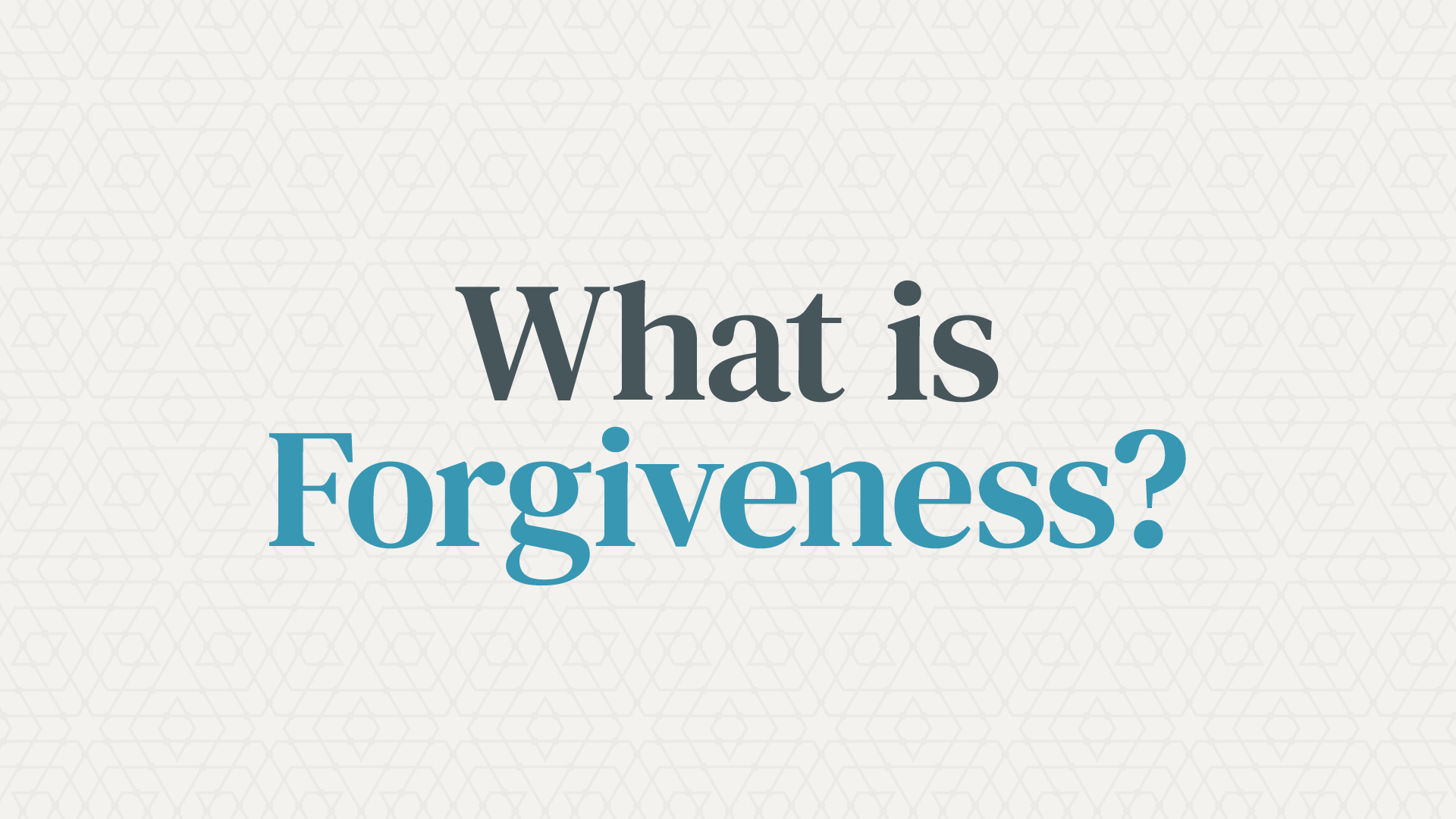We’ve all had people hurt us, many times, in ways both big and small. It is part of living in a sinful world: people will sin against you.
The Bible is clear that Christians are to forgive others who sin against us, just as God has forgiven us for our sins (Matthew 6:14-15; Ephesians 4:32). However, there is a lot of misunderstanding in our culture about what that really means.
Since forgiveness is so central to our faith, we wanted to clarify what forgiveness is, and (in upcoming articles) why we should forgive, how to ask for forgiveness, and how to grant forgiveness.
The Model of Forgiveness
Because we are told to forgive “as the Lord has forgiven you” (Colossians 3:13), it can help to look at how God forgives us.
We have all sinned against God (Psalm 51:4; Romans 3:23). That sin creates a debt (Matthew 6:12); to make things right with God, we should have to pay for what we have done. That would be fair. Unfortunately, the fair payment for sinning against a holy God is death (Romans 6:23) and eternal separation from Him. Thankfully, wonderfully, God has eliminated that debt we owe, sending His Son to pay the penalty in our place (Mark 10:45). When we say we are forgiven by God, we mean that He no longer requires us to pay for our sins. Our debt is forgiven.
God’s forgiveness is the model and motivation for how we are to forgive others (Matthew 18:23-35). He has freed us from a massive debt; in response, we should forgive the comparatively smaller debts that people owe us.
What Forgiveness Is
So, what does it mean to forgive someone? What does forgiveness look like in practice?
- Forgiveness is a canceling of debt. In a way, forgiveness is an accounting term; you forgive the debt and remove it from the ledger. In practice, that means you decide that you are not going to punish the other person for what they have done or seek vengeance (Leviticus 19:18). You also won’t intentionally seek to make them feel badly about it, or bring it up in the future as a way to hurt them. The debt is gone—it’s forgiven—so they no longer owe you.
- Forgiveness is a choice. You choose whether or not to forgive someone. It is an active decision you make, not a feeling that you passively experience. Because it is a choice, you can always offer forgiveness. Saying that you can’t forgive someone really just means you won’t forgive them—or that you simply misunderstand the meaning of forgiveness.
- Forgiveness is for your benefit as well as theirs. Although we often think of forgiveness as a gift to the person being forgiven, it is really a gift you give yourself. Carrying a grudge only weighs you down. It sometimes hurts the other person, but it always affects you (Psalm 37:7-8; Ephesians 4:26).
What Forgiveness Is Not
To fully understand what forgiveness is, it’s helpful to understand what it is not.
- Forgiveness is not a feeling. You probably won’t feel like forgiving the person who has sinned against you. You will probably still feel hurt by their actions, at least for a while. However, forgiveness can help those feelings dissipate over time.
- Forgiveness is not forgetting. “Forgive and forget” is a nice sentiment, but you don’t truly forget something. In fact, you might sometimes have to remind yourself that you have forgiven them. You can choose not to bring it up or hold it against them, but you can’t choose whether or not you will retain memories of the event.
- Forgiveness is not waiting for them to pay you back. If the other person has to make it up to you before you will forgive them, then that is not forgiveness at all; if the debt’s been paid, there is nothing left to forgive. The other person might choose to make amends after you forgive them, but that’s their free choice, and cannot be a condition of true forgiveness.
- Forgiveness is not minimizing the sin or saying that it is OK for them to sin again. Forgiving someone doesn’t mean that the sin wasn’t hurtful or damaging to you. It’s not a “free pass” for them to sin again because they know that you are going to forgive them (Romans 6:1-2). It just means that you’re not the one who is going to extract justice (Romans 12:19).
- Forgiveness is not necessarily letting them off the hook. There are times when it is wise to let someone experience the natural consequences of what they’ve done (Galatians 6:7-8). You should forgive them, but you don’t have to shield them from those consequences. It may also be wise for them to have some restrictions going forward—rules, filters, or procedures that help prevent them from falling back into sin patterns.
- Forgiveness is not an instant conferral of trust. Trust is not a gift; it is earned over time. Forgiving someone just means that you are giving them an opportunity to regain trust by proving their faithfulness over a long season.
Forgiveness is not easy. Technically, and almost by definition, it is not fair; the fair thing would be for the offending party to pay restitution in full. But that’s not how God treats us; His forgiveness of our sins is decidedly unfair in the most loving way possible (Romans 5:6-8). And that is why we are to forgive each other.
